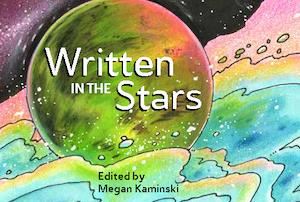

Big Idea: Doing Indigenous Language
May 11, 2022
By Dr. Andrew McKenzie (Kiowa Tribe of Oklahoma), Associate Professor of Linguistics and Affiliate Professor in Indigenous Studies at the University of Kansas.
Being indigenous in modern times means having one foot in the traditional world, and one in the modern. Oftentimes, we’ll prioritize a special niche that firmly anchors us in the traditional ways. Some of us dance, some do beadwork, some pursue a traditional religion. I do language.
I even do it professionally as part of my work as a linguistics professor. Contrary to popular belief, being a linguist doesn’t mean I know a lot of languages (though I do), but rather that I am a scientist about language. Like any scientist, I have to narrow my research focus, and mine focuses on how meaning works as a system in Kiowa.
Now, a language is more than just a system that cobbles sounds together into words and phrases in ways that scientists can reverse-engineer. It’s also the stories, the people, and the community whose threads are woven with every sentence. As a Kiowa linguist I have another double identity: One hand on the scientific side of language, one on the social side.
Like many Indians, I follow in the footsteps of my forebears. In this case my great-grandfather, Parker McKenzie. In Kiowa terms, we would be called fā́bìAs/[páːbì] “brothers.” Parker didn’t learn English until he went to school, and he grew up fascinated by Kiowa. In school he even invented a way to write it... to encode love notes to his future wife! Forming bonds. He refined his brilliantly intricate system over the years, deftly marshalling Roman letters to cover sounds English doesn’t have. Both Kiowas and linguists use it today. Of course, Kiowas are very independent folk, so everyone usually tweaks his system this way or that.
He was a linguist as well. He happily helped generations of linguists make heads or tails of how Kiowa works. Sometimes they gave him due credit, and he earned an honorary doctorate for his success.
Growing up, I didn’t learn much Kiowa except when visiting Parker’s little farmhouse. Boyish rebellion and a modern attention span got in my way. Still, he never let us leave without some lesson, and those lessons eventually took root. I became enthralled with Kiowa as well, learning it in college and keeping with it through the gauntlet of graduate school. Now, I get to work with elder speakers to figure out the deep intricacies of the language, filling in the gaps of my own and other learners’ knowledge, and also shaking up linguistic theory a little bit.
Sadly, like most American languages, Kiowa is being “wiped away.” Few can speak it; even fewer still use it to form bonds or teach the young. That requires knowing the language system, and learning a language is really hard. So I share everything I can, and language is beautiful because when you share it, you both get to have it. By doing so I help build our language community back up. That’s what “saving” the language really is to me.

About Andrew McKenzie
Dr. Andrew McKenzie is Associate Professor of Linguistics and Affiliate Professor in Indigenous Studies at the University of Kansas. He is a member of the Kiowa Tribe of Oklahoma. After graduating summa cum laude from the University of Oklahoma, he earned his PhD in linguistics from the University of Massachusetts. He now lives in Lawrence with his family. His most recent work, Plains Life in Kiowa: Voices of a Tribe in Transition, is a collection of stories and discussions told in Kiowa that was published last month.
Spark a Conversation
- WATCH We Still Live Here by Anne Makepeace. Every Thanksgiving, millions of Americans celebrate the friendship between the Pilgrims and “the Indians,” but few know that these Indians, the Wampanoag, still live on their native homelands, where an astonishing cultural revival is taking place.
- EXPLORE The Kiowa Tribe shares resources from the Kiowa Language & Culture Revitalization Program on their website. Learn through videos, games, and audio clips—including examples of the Parker McKenzie System.
- READ The Way to Rainy Mountain by N. Scott Momaday. Exploring Kiowa myths, legends, and history, this creative memoir is an evocation of three things in particular: a landscape that is incomparable, a time that is gone forever, and the human spirit, which endures.



